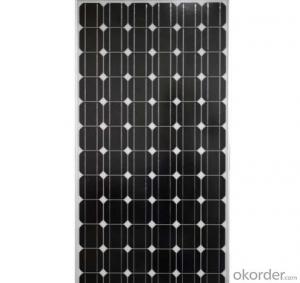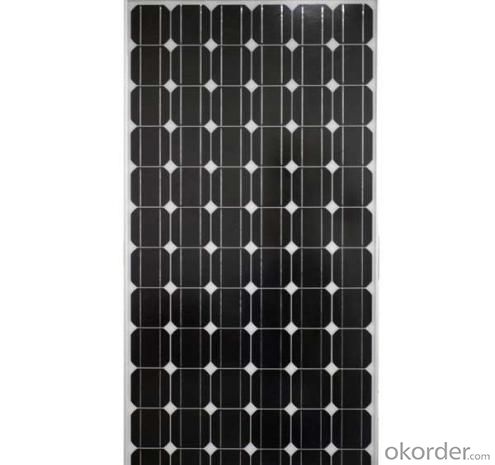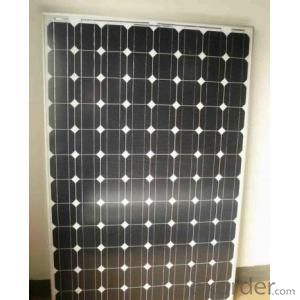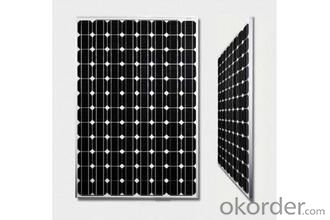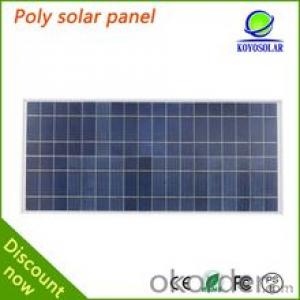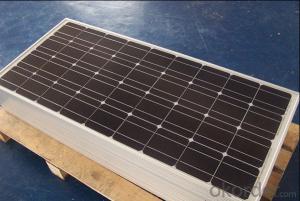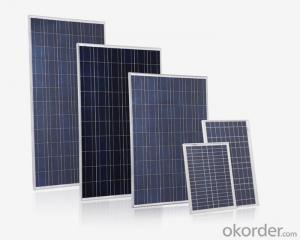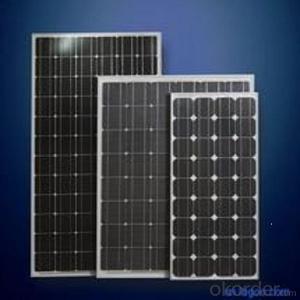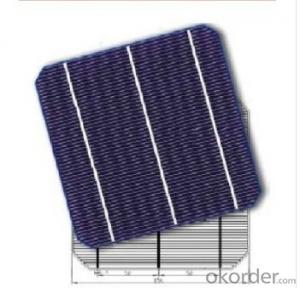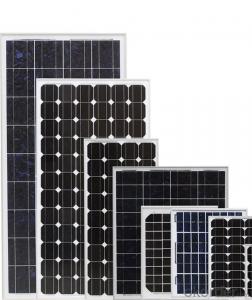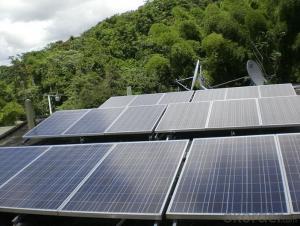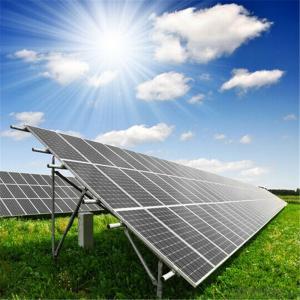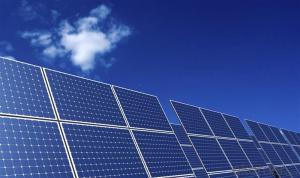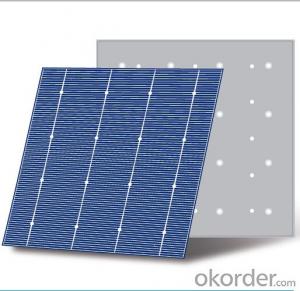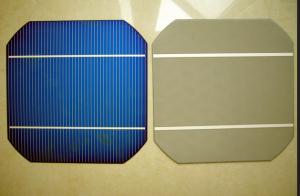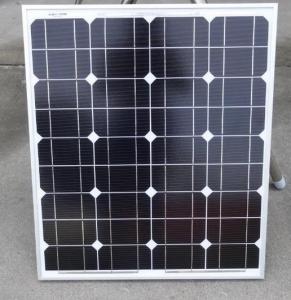Solar Cells Inc 260w Solar Panel for 35kw Solar Home Solution with 25 Years Quality Assurance
- Loading Port:
- Shanghai
- Payment Terms:
- TT OR LC
- Min Order Qty:
- 26 pc
- Supply Capability:
- 5000 pc/month
OKorder Service Pledge
OKorder Financial Service
You Might Also Like
Specification
156x156mm 3BB Poly Solar Cells 6x6 with Sperior Quality for Solar Panel
Production description
A photovoltaic system, also solar PV power system, or PV system, is a power system designed to supply usable solar power by means ofphotovoltaics. It consists of an arrangement of several components, including solar panels to absorb and convert sunlight into electricity, a solar inverter to change the electric current from DC to AC, as well as mounting, cabling and other electrical accessories to set up a working system. It may also use a solar tracking system to improve the system's overall performance and include anintegrated battery solution, as prices for storage devices are expected to decline.
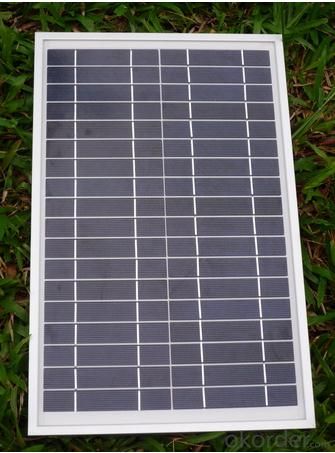
Feature
1.High conversion efficiencies resulting in superior power output performance.
2.Outstanding power output even in low light or high temperature conditions
3.Optimized design for ease of soldering and lamination
4.Long-term stability,reliability and performance
5.Low breakage rate
6.Color uniformaity
Physical characteristic
1. Rigorous quality control meets the highest international standards.
2. High-transmissivity low-iron tempered glass, strong aluminium frame.
3. Using UV-resistant silicon.
4. IS09001/14001/CE/TUV/UL
- Q: What is the role of trackers in solar cell systems?
- Trackers in solar cell systems are devices that help optimize the performance of solar panels by following the movement of the sun throughout the day. Their role is to ensure that the solar panels are always facing the sun at the optimal angle, maximizing the amount of sunlight they receive. This leads to increased energy production and improved efficiency of the solar cell system.
- Q: Can solar cells be used in emergency lighting?
- Yes, solar cells can be used in emergency lighting. Solar-powered emergency lights are designed to provide illumination during power outages or emergencies by utilizing solar panels to convert sunlight into electricity, which is then stored in batteries for later use. This makes them a reliable and sustainable option for emergency lighting solutions.
- Q: How do solar cells handle electromagnetic pulses?
- Solar cells are generally not designed to handle electromagnetic pulses (EMPs) as they are highly sensitive electronic devices. Strong EMPs, such as those caused by a nuclear explosion or a solar storm, can potentially damage or destroy solar cells by overwhelming their circuitry. However, it is worth noting that the likelihood of solar cells being directly affected by EMPs is relatively low, as they are often shielded by other components of the solar panel system such as inverters and wiring.
- Q: Can solar cells be used to power air conditioning systems?
- Yes, solar cells can be used to power air conditioning systems. Solar panels can generate electricity from sunlight, which can then be used to power various appliances including air conditioning units. This offers a sustainable and renewable energy solution, reducing reliance on traditional power sources and contributing to a greener environment. However, it is important to note that the efficiency and capacity of solar cells may limit their ability to fully power larger air conditioning systems.
- Q: What is the effect of pollution on solar cell performance?
- The effect of pollution on solar cell performance is generally negative. Pollution, such as dust, smog, and airborne particles, can accumulate on the surface of solar panels, reducing their ability to absorb sunlight and convert it into electricity. This buildup of pollutants creates a barrier between the sun's rays and the solar cells, resulting in decreased energy production. Regular cleaning and maintenance of solar panels are necessary to mitigate the impact of pollution and maintain optimal performance.
- Q: Can solar cells be used in recreational vehicles or boats?
- Yes, solar cells can be used in recreational vehicles or boats. They provide a reliable and eco-friendly source of power for charging batteries and running various appliances on board. Solar panels can be easily mounted on the roof of the vehicle or boat to harness sunlight and convert it into electricity, making them an ideal solution for off-grid power needs while enjoying outdoor activities.
- Q: What is the role of voltage regulators in solar cell systems?
- The role of voltage regulators in solar cell systems is to regulate and control the voltage output from the solar panels to ensure it remains within a specific range that is suitable for the connected devices or batteries. This helps prevent overcharging, which can damage the devices or batteries, and ensures optimal performance and efficiency of the solar cell system.
- Q: Can solar cells be used in mining operations?
- Yes, solar cells can be used in mining operations. They can provide a sustainable and cost-effective source of energy for various mining activities, such as powering equipment, lighting, and ventilation systems. Additionally, solar cells can be integrated with energy storage solutions to ensure uninterrupted power supply, even in remote mining locations. By using solar cells, mining operations can reduce their reliance on fossil fuels, decrease their carbon footprint, and contribute to a more sustainable mining industry.
- Q: How do solar cells perform in dry desert conditions?
- Solar cells perform exceptionally well in dry desert conditions. The intense sunlight and lack of moisture in deserts create ideal conditions for solar energy generation. The absence of clouds and high temperatures enhance the efficiency of solar cells, allowing them to produce more electricity. Additionally, the dry conditions minimize the risk of corrosion and dust accumulation, which can further improve the performance and lifespan of solar panels.
- Q: Can solar cells be used in disaster response vehicles?
- Yes, solar cells can be used in disaster response vehicles. They can provide a reliable and renewable source of power to charge essential equipment and devices, such as communication systems, lights, and medical equipment. Solar cells are especially useful in remote or off-grid areas where traditional power sources may be disrupted or unavailable during a disaster.
Send your message to us
Solar Cells Inc 260w Solar Panel for 35kw Solar Home Solution with 25 Years Quality Assurance
- Loading Port:
- Shanghai
- Payment Terms:
- TT OR LC
- Min Order Qty:
- 26 pc
- Supply Capability:
- 5000 pc/month
OKorder Service Pledge
OKorder Financial Service
Similar products
Hot products
Hot Searches
Related keywords
